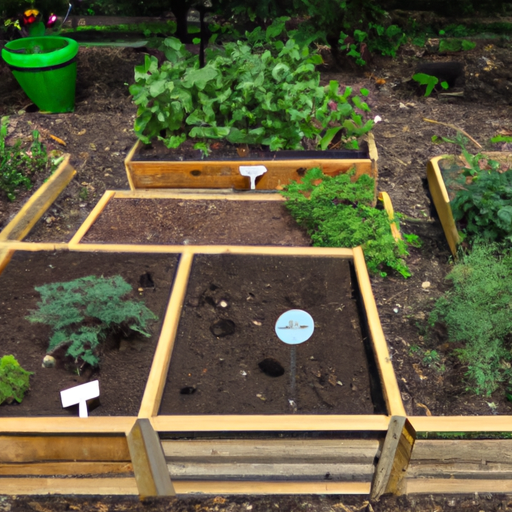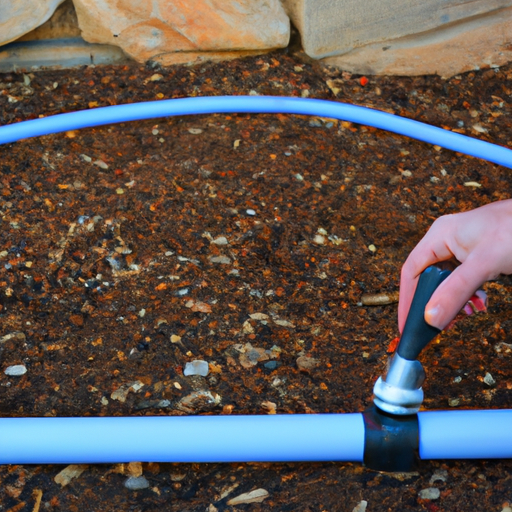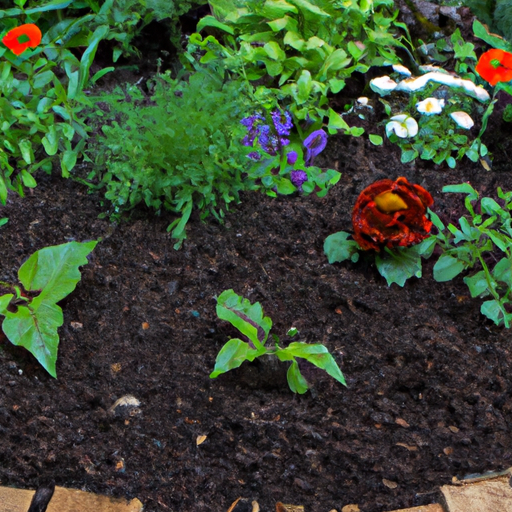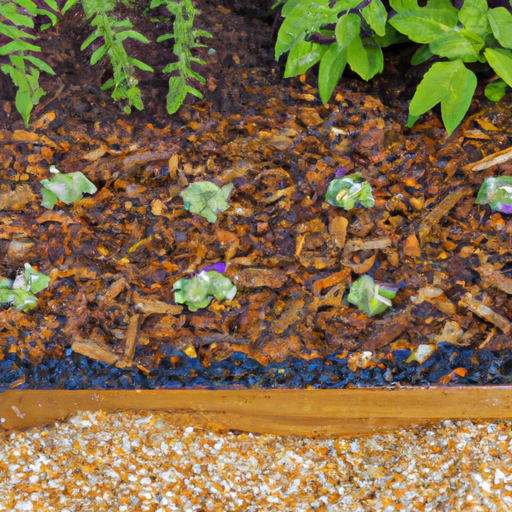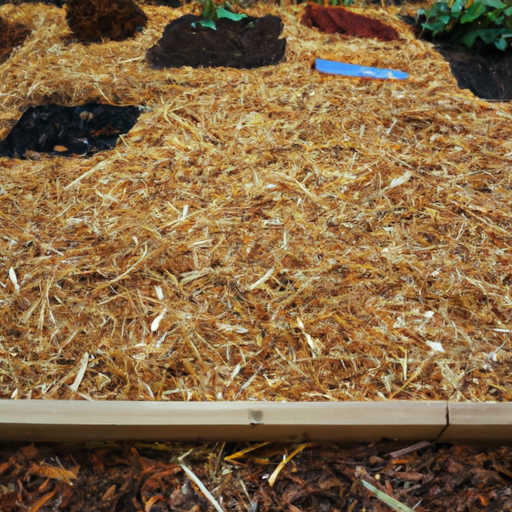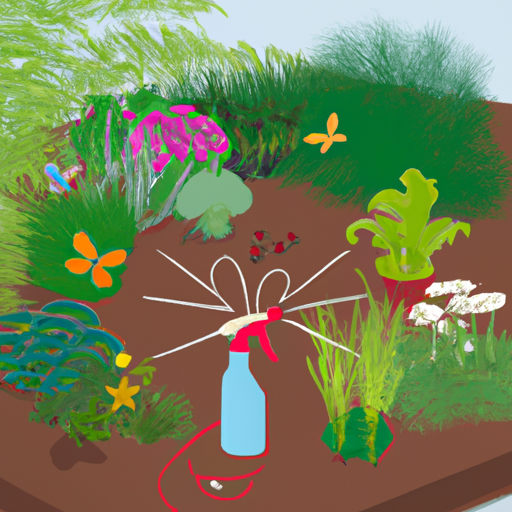Welcome, fellow gardeners! If you’re like me, then you know the joys of raised bed gardening. It’s a fantastic way to grow fresh produce in limited space while also controlling soil quality and minimizing weeds. However, with all the benefits come some challenges – namely, pests that can wreak havoc on your plants.
But fear not! In this article, we’ll explore common pest problems in raised bed gardens and offer solutions to keep those pesky critters at bay.
First up on our list are aphids – tiny insects that suck sap from plant stems and leaves. They reproduce rapidly and can quickly infest an entire garden if left unchecked. Luckily, there are several ways to get rid of these pests without resorting to harsh chemicals. We’ll discuss natural remedies such as insecticidal soap or neem oil spray that won’t harm beneficial insects or birds.
Next, we’ll tackle another common problem: slugs and snails. These slimy creatures love damp environments and can decimate young seedlings overnight. But don’t worry – there are simple tricks you can use to deter them, including copper tape barriers or beer traps (yes, really!).
So grab your gardening gloves and let’s dive into some solutions for common pest problems in raised bed gardens!
Identifying Common Garden Pests
As a Master Gardener, identifying common garden pests is crucial in maintaining the health of raised bed gardens.
One pest that often plagues tomato plants are aphids, which can be controlled through natural methods such as using ladybugs or spraying with soapy water.
On the other hand, dealing with potato beetle infestations requires more aggressive measures like picking them off by hand or using neem oil.
It’s important to regularly inspect and monitor your garden for any signs of pest problems to nip them in the bud before they become too severe.
Remember, prevention is key when it comes to pest control methods for tomato plants and other crops in raised beds.
Natural Remedies For Aphids
Now that we have identified common garden pests, let’s explore natural remedies for one of the most prevalent culprits: aphids.
Did you know that a single aphid can produce up to 80 offspring in just one week? That means an infestation can quickly spiral out of control if not addressed promptly.
Luckily, there are several effective and eco-friendly solutions you can try.
– DIY Spray
Mixing up your own spray is easy and affordable. Here are three recipes to consider:
– Garlic and Chili Pepper Spray: Crush five garlic cloves and two hot peppers into a gallon of water. Let steep overnight before straining and pouring into a spray bottle.
– Soap Spray: Mix one tablespoon dish soap with one quart water in a spray bottle.
– Neem Oil Spray: Combine two teaspoons neem oil with one quart warm water and a few drops of dish soap. Shake well before using.
– Companion Plants
Planting certain flowers, herbs or vegetables alongside your susceptible crops can help deter aphids naturally. Some excellent companion plants include:
– Marigolds
– Nasturtiums
– Chives
– Dill
– Physical Removal
For small infestations or localized colonies, removing them by hand may be the best solution. Simply use gloves or a soft-bristled brush to gently wipe away the insects from leaves and stems.
As Master Gardeners, it is important to understand that chemical pesticides should always be used as a last resort due to their potential harm on non-targeted beneficial insects such as bees and butterflies. By implementing these natural remedies like DIY sprays, companion planting techniques, and physical removal methods, you’ll be able to keep your raised bed gardens healthy while reducing the impact on the environment.
Deterrents For Slugs And Snails
As a Master Gardener, I highly recommend using copper barriers and beer traps as deterrents for slugs and snails in raised bed gardens.
Copper barriers work by creating an unpleasant sensation on the slime trail of these pests, making them turn away from your plants. You can install strips of copper tape or wire around the edges of your garden beds to create this barrier.
On the other hand, beer traps are a more affordable option that also works effectively against these slimy creatures. Simply bury a small container filled with beer in the soil near your plants, and wait for the slugs and snails to fall into it and drown. Remember to change the beer regularly to ensure its effectiveness.
These simple solutions are environmentally friendly and safe for other beneficial insects in your garden, so give them a try!
Preventing Infestations With Companion Planting
Oh, those pesky pests! As much as we love our raised bed gardens, it seems like the bugs and critters love them just as much. But fear not, fellow gardeners! There are ways to prevent infestations with companion planting.
By utilizing intercropping strategies and creating beneficial insect habitats, we can keep those unwanted visitors at bay. Intercropping is a technique where different plants are grown together in close proximity to one another. This method disrupts the pest’s ability to locate their preferred host plant by masking the scent or altering the taste of the crops they find desirable.
For example, growing basil next to tomato plants helps deter whiteflies from attacking the tomatoes. Another way to discourage pests is by creating habitats for beneficial insects that prey on common garden pests. Planting flowers such as marigolds or zinnias attract pollinators like bees and butterflies while also providing habitat for predator insects like ladybugs and lacewings.
These predators feed on aphids and other destructive insects that can wreak havoc on your plants. By incorporating these intercropping strategies and beneficial insect habitats into your raised bed garden, you’ll be able to prevent infestations without relying heavily on pesticides or harmful chemicals. Not only will this benefit your garden but also contribute positively towards nature’s ecosystem.
Maintaining A Healthy Garden Ecosystem
Maintaining a healthy garden ecosystem is essential to successfully managing pest problems in raised bed gardens.
One way to achieve this is through composting, which provides numerous benefits such as improving soil health and promoting beneficial microorganisms that can help control pests naturally.
Another technique that can aid in preventing pest buildup is crop rotation. By rotating crops each season, you can disrupt the life cycle of some pests, reducing their numbers over time.
Incorporating these practices into your gardening routine can help create a balanced ecosystem where plants thrive and pests are kept under control without resorting to harsh chemicals or pesticides.
Frequently Asked Questions
Is It Safe To Use Pesticides In A Raised Bed Garden?
Is it safe to use pesticides in a raised bed garden?
While there are benefits to using chemical pesticides, such as their effectiveness in controlling pests quickly and efficiently, there are also drawbacks that gardeners should be aware of.
The use of pesticides can harm beneficial insects and other wildlife, which can negatively impact the overall health of your garden ecosystem.
Additionally, some chemicals may leach into the soil and affect the quality of produce grown in the raised beds.
As a Master Gardener, I would suggest exploring alternative solutions for pest control in your raised bed garden before resorting to pesticide use.
These could include companion planting, crop rotation, physical barriers like netting or row covers, and natural remedies like neem oil or garlic spray.
By taking a holistic approach to gardening and considering the long-term effects on both your plants and environment, you can create a thriving raised bed garden without compromising safety or sustainability.
How Do I Prevent Birds From Eating My Crops?
When it comes to protecting your crops from pesky birds, there are several bird netting solutions and scarecrow designs you can use.
One effective method is the ‘scare-eye’ balloon which deters birds with its intimidating eye-like design.
Another option is a simple DIY scarecrow made from old clothes and stuffed with straw or leaves. However, be sure to secure these in place as windy weather may cause them to topple over.
Bird netting is also an excellent way to keep birds away from your plants while still allowing sunlight and water through.
With these methods at hand, you can safeguard your hard work from becoming a feathered feast for unwanted visitors.
What Can I Do To Keep Rodents From Burrowing Into My Raised Bed?
To keep rodents from burrowing into your raised bed, consider using raised bed garden covers. These can be made of wire mesh or hardware cloth and will prevent pests from digging through the soil.
Another effective solution is to use companion planting strategies that deter rodents, such as planting mint or other strong-smelling herbs around the edges of your raised bed.
By incorporating these techniques, you’ll avoid damage to your crops and enjoy a bountiful harvest in no time!
Are There Any Natural Ways To Get Rid Of Spider Mites?
Spider mites can be a pesky nuisance for any gardener. Fortunately, there are natural solutions available to help get rid of these unwelcome critters.
Companion planting is one effective method that involves growing certain plants together to deter pests. For example, planting garlic or chives near your raised bed garden can repel spider mites with their strong scent.
Essential oils, such as peppermint and rosemary, can also be used to keep the pests at bay. Simply mix a few drops in water and spray it on affected areas.
These natural remedies not only ward off spider mites but also promote a healthy and thriving garden ecosystem. As a Master Gardener, I highly recommend exploring these alternative pest control methods for a successful and sustainable gardening experience.
How Can I Prevent My Plants From Being Attacked By Cutworms?
To prevent your plants from being attacked by cutworms, one effective approach is to try companion planting.
Certain plant combinations can help deter these pests and protect your garden beds.
For instance, pairing marigolds with vegetables like tomatoes or peppers not only adds a beautiful splash of color but also repels cutworms due to the scent that they emit.
Another option is to use physical barriers such as cardboard collars around the base of your seedlings.
This will stop the worms in their tracks and prevent them from chomping on your precious plants!
By taking these preventive measures, you’ll be able to keep cutworms at bay and enjoy a thriving garden all season long.
Conclusion
In conclusion, there are many solutions to common pest problems in raised bed gardens.
While pesticides may seem like a quick fix, it’s important to consider the safety of both your plants and yourself before using them.
Using natural methods such as bird netting or physical barriers can be just as effective in preventing birds and rodents from disrupting your garden.
If you do encounter pests such as spider mites or cutworms, don’t fret! There are natural remedies available that won’t harm your plants or the environment.
As a Master Gardener, I recommend doing some research on organic pest control methods and experimenting with different techniques until you find what works best for your specific situation.
By taking a proactive approach and being mindful of the impact we have on our ecosystem, we can create beautiful and thriving raised bed gardens without sacrificing safety or sustainability.
